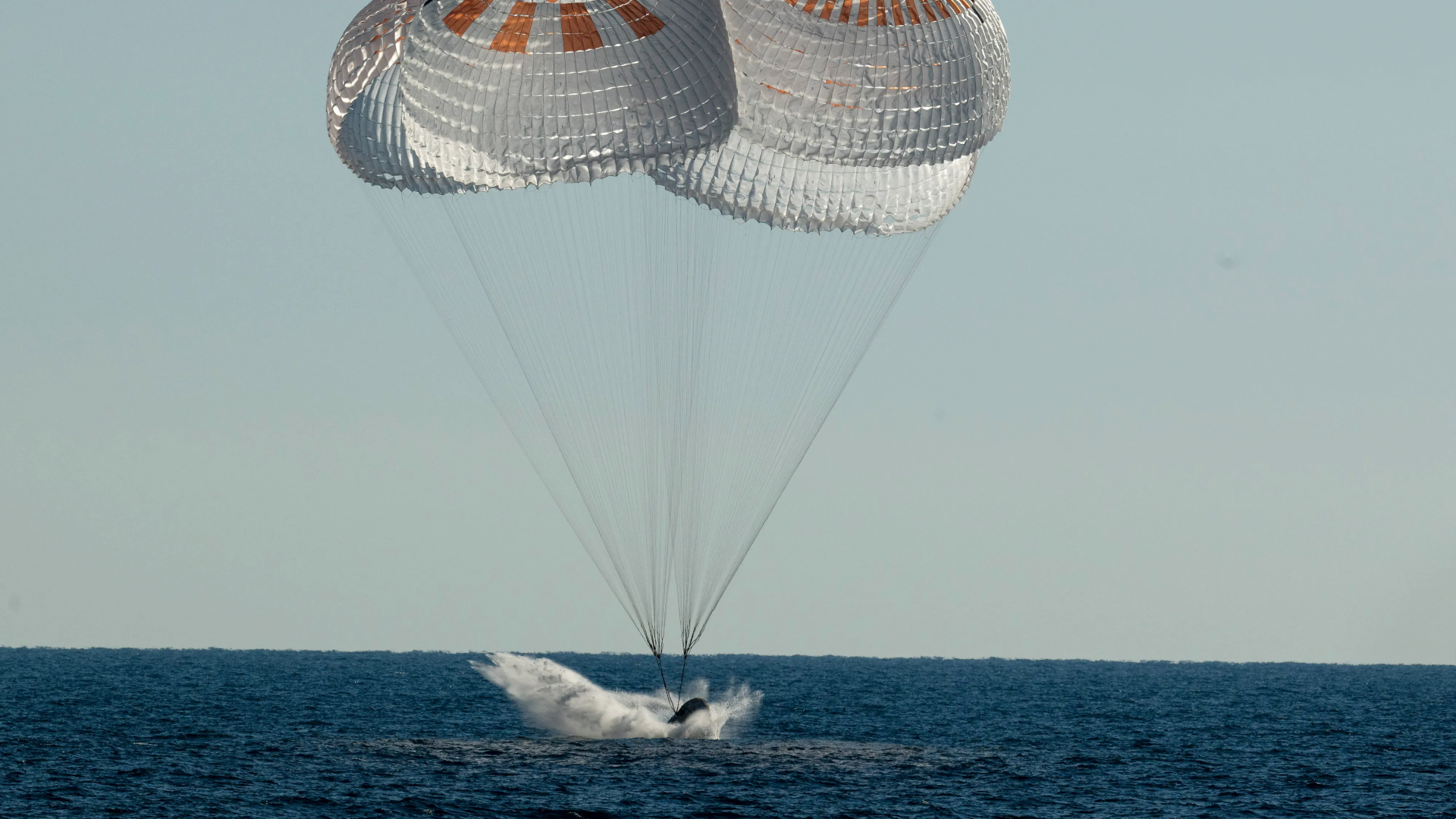
The next space station astronaut crew may be the last to splash down in the ocean nearby the U.S. east coast.
The Crew Dragon Crew-9 mission with astronauts is scheduled to launch to the International Space Station no earlier than Aug. 18, perhaps becoming the final NASA-led ISS mission to arrive in the Atlantic Ocean aboard Crew Dragon.
Repeated issues with large chunks of debris from Dragon — "trunks" where the fuel and electrical supplies are held — have repeatedly crashed down in areas ranging from Australia to North Carolina. One measure to fix that will be tasking future spacecraft after Crew-9, perhaps as soon as Crew-10, to splash down on the U.S. Pacific coast, SpaceX said during a press conference today (July 26).
"What we'll do is we'll implement a software change to complete the deorbit burn before jettisoning the trunk, like we did with Dragon-1, and then the trunk will intentionally land [...] in an unpopulated area of the ocean," Sarah Walker, SpaceX's director of Dragon mission management, said in the livestreamed briefing. "So to make this change possible, we'll move a Dragon recovery vessel to the Pacific sometime next year."
Related: SpaceX launches to ISS are under independent NASA review after rare Falcon 9 rocket failure

Aside from less space junk, the Pacific coast tends to be subject to fewer instances of extreme weather and hurricanes, potentially adding more predictability for scheduling the end of crewed missions, Walker noted.
The four astronauts on board Crew-9 include commander Zena Cardman (NASA), pilot Nick Hague (NASA), mission specialist Stephanie Wilson (NASA) and mission specialist Alexsandr Gorbunov (Roscosmos).
Crew-9 will only fly to space once NASA approves Falcon 9 for ISS launches again, but all is proceeding so far for an Aug. 18 liftoff. The Falcon 9's second stage experienced a failure on July 11 due to an oxygen leak, during a Starlink satellite launch. SpaceX says it has resolved the matter with the Federal Aviation Administration and plans launching other missions again as soon as Saturday (July 27).
NASA said the fixes the FAA approved will take place before the space agency's program control board for Crew-9, but the agency has been embedded with the SpaceX investigation all along and is confident in the work so far. "We understand exactly what they've [SpaceX] have done," NASA's Steve Stich, program manager for commercial crew, said in the briefing.
It has been a busy month for the ISS, as Boeing Starliner's engineers continue their investigation of issues during docking of the first test astronaut mission on June 5. Ground tests showed issues with thruster insulation and propulsion flow that likely affected approach to the ISS, a press conference said yesterday (July 25).
The two Starliner astronauts, NASA's Butch Wilmore and Suni Williams, are more than 50 days into what was supposed to be a 10-day mission and no landing date has been set yet, as Boeing and NASA continue to study the thruster problems and helium leaks in the propulsion system. These will need to be addressed ahead of operational, six-month ISS missions by Starliner starting as soon as 2025.
Wilmore and Williams have been living off a four-month reserve of supplies on the ISS before their return, which will be sometime before Crew-9 arrives at ISS. They will at last be receiving their personal items on a Northrop Grumman Cygnus cargo spacecraft to the ISS aboard Falcon 9 set for no earlier than Aug. 3, as their suitcases had to be pulled off last-minute from CFT's Starliner to ship a critical ISS part for its water system.
"There are any number of challenges that we can face that that result in a shortage of supplies on board, for example, if you have a cargo flight that slips out [delays]," ISS program manager Dana Weigel told Space.com in the press conference, explaining why the reserve exists.
The reserve includes clothing, food, water, oxygen, nitrogen and other critical items. "We had plenty of generic supplies on board," Weigel noted. "So we just had Butch and Suni use those."







